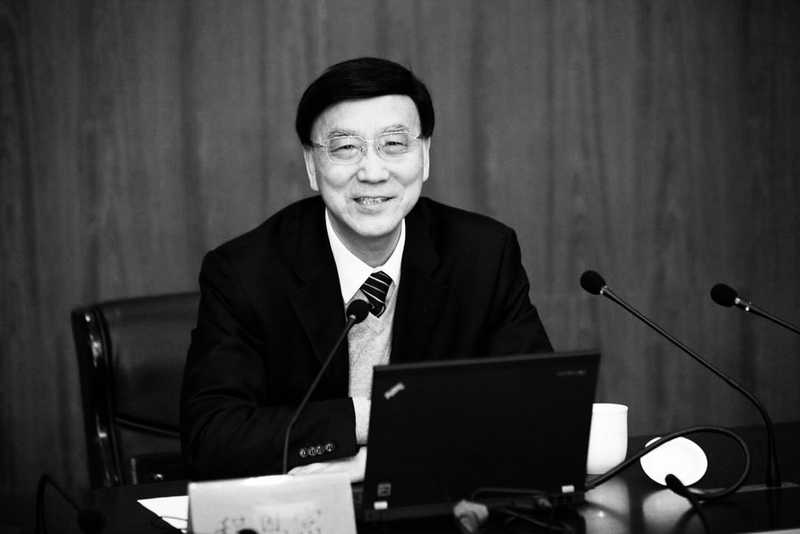
The NIEO and the global economy
The past 50 years have shown that the Declaration on the Establishment of a New International Economic Order and its nonlinear development in political practice have played an important historical role in promoting a more rational organization of the international economic order. In 1974, following the hard work and united struggle of third-world nations, the 6th Special Session and the 29th Regular Session of the UN General Assembly discussed and passed the Declaration on the Establishment of a New International Economic Order, the Programme of Action, and the Charter of Economic Rights and Duties of States. Finally, a framework had been established that would play a guiding role toward realizing the New International Economic Order. After 1974, several international meetings were held, focusing on developing nations. Many declarations and resolutions were presented at these meetings, further enriching the ideological content of the New International Economic Order and promoting the transformation of the international economic order.
In the 1980s, when global economic development created unfavorable conditions for North-South negotiations, both developed and developing nations exchanged views at the Cancun Conference, where they reached consensus on a number of concrete issues regarding North-South relations. South-South cooperation also developed considerably during this period, with developing nations signing up to general agreements on the global trade system on the basis of preferential trade negotiations, and strengthening cooperation and mutual support to share in the fruits of technological progress. This created a favorable environment for the international economic order to be guided by more rational principles, although this was seriously impeded by the long-term "Cold War" policies enacted by the major capitalist nations during this period.
From the 1990s to the present day, following the end of the Cold War, globalization has progressed rapidly. The development of transportation and information technology has brought countries around the world closer together, accelerating the cross-border movements of supply and commodity chains globally. Globalization is also deepening, drawing all countries into a global market economic system. Driven by the scientific and technological revolution, the depth, breadth, and level of international division of labor have continued to increase. Economic interests among all nations and regions are also becoming more and more intertwined with each passing day. One of the major outcomes of this type of development has been a deepened interdependence among the global economies. This has provided important opportunities for global economic development in the early 21st Century, and has also served the development of a multipolar global economy.
US domination
The current phase of reform to the international economic order is being seriously obstructed or even reversed by the G7, led by the US. The US and its allies dominate international economic organizations and set international economic rules, pursuing neo-hegemonic, neo-imperialist, and neo-liberal policies, making the adoption of US values and pro-US positions a prerequisite to foreign economic exchanges and assistance. This also turns international economic policies into tools for the US to protect its own power and contain or weaken the power of others for their own narrow interests. This has significantly undermined the democratic governance of the global economy. It has also led to a clear decline in the operating ability of those organizations that maintain the stability of the international economic system, causing a relative shortage in the global supply of public goods and the emergence of global crises, such as economic wars, resource wars, tech wars, and trade wars. These represent a major obstacle in the international economic order’s transition toward a more rational outlook. However, a wide array of developing nations and progressive forces around the world are also showing a positive impact in countering economic hegemony, either out of necessity or active volition, advancing the rationalization of the international economic order ever further.

A sketch of the future
The future goal of restructuring the new international economic order – its formulation and implementation – should have the following characteristics. First, it must advance the new concept of building a "community with a shared future for humanity". Many international organizations and conferences have recognized this philosophy. It aims to give consideration to reasonable relations with other nations while pursuing one's own interests; to promote the common development of all nations while seeking one's own development; to realize this global value through the interdependence of international rights, win-win cooperation, sustainable development, and global democratic governance; and to eliminate negative values such as unilateralism, bullying, and cliquism.
Second, it must promote positive reform of the United Nations and the various international economic organizations. Reforms and improvements to the basic structure and regulations of the WTO, the World Bank, the IMF, etc., should focus on reflecting the will and shared democratic governance principles of the developing nations who make up the majority, and should gradually eliminate arbitrary domination by a handful of developed nations.
Third, it must promote the openness of various kinds of regional and collective organizations of economic cooperation and of international economic forums. It must establish more organizations of international economic cooperation that are non-exclusive, such as the Asian Infrastructure Investment Bank and the Belt and Road Initiative, and it must resist and eliminate organizations of international economic cooperation that are established to target other countries or form cliques.
Fourth, it must promote strict adherence to international law and international economic regulations by all countries. Maintaining and improving the international economic order and shared global economic governance are the duties of all nations, and especially the developed nations. Truly civilized countries and progressive forces should unite to gradually eliminate any acts that place the law of one's own country above international law, which arbitrarily impose economic sanctions and blockades on other countries, or which undermine the international economic order and international economic regulations.
Fifth, it must promote the peaceful development and common security of all nations. In international relations, political democratization, the development of defensive militaries and common security are extremely important for maintaining and further improving the international economic order. It is necessary to gradually eliminate the military-industrial complexes, financial monopolies, and other organizations of individual countries that work together to encourage their governments to continuously expand the military power and scope of NATO.
Over the decades, China has consistently pushed its position and policies of an international economic order that is principled and rationally organized, making its due contribution to the ultimate realization of a more just order shaped collectively by the international community. It is currently taking action to confront major changes in the international economic and political situation following the COVID-19 pandemic and the conflict between Russia and Ukraine, and continues to fight for a new international economic order for the future.

Cheng Enfu is Professor and President of the Academy of Marxism, Chinese Academy of Social Sciences (CASS).
Photo: Hainan Normal University





